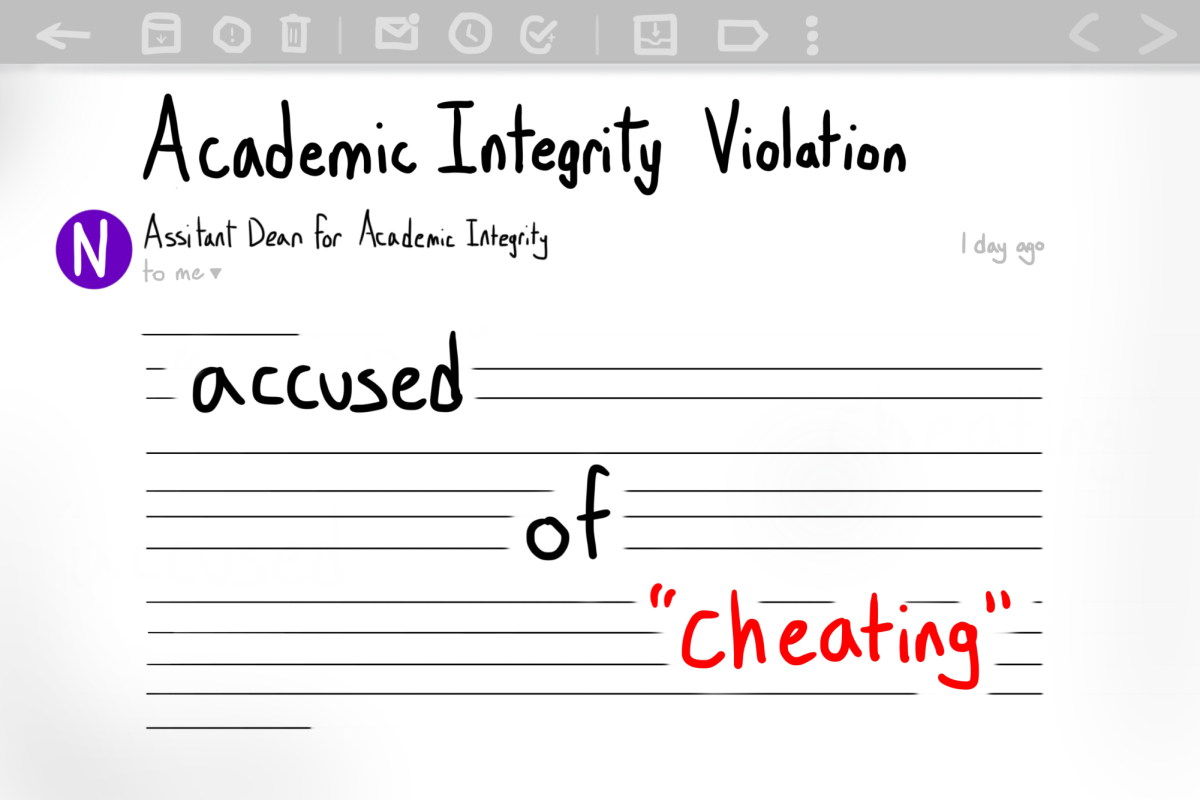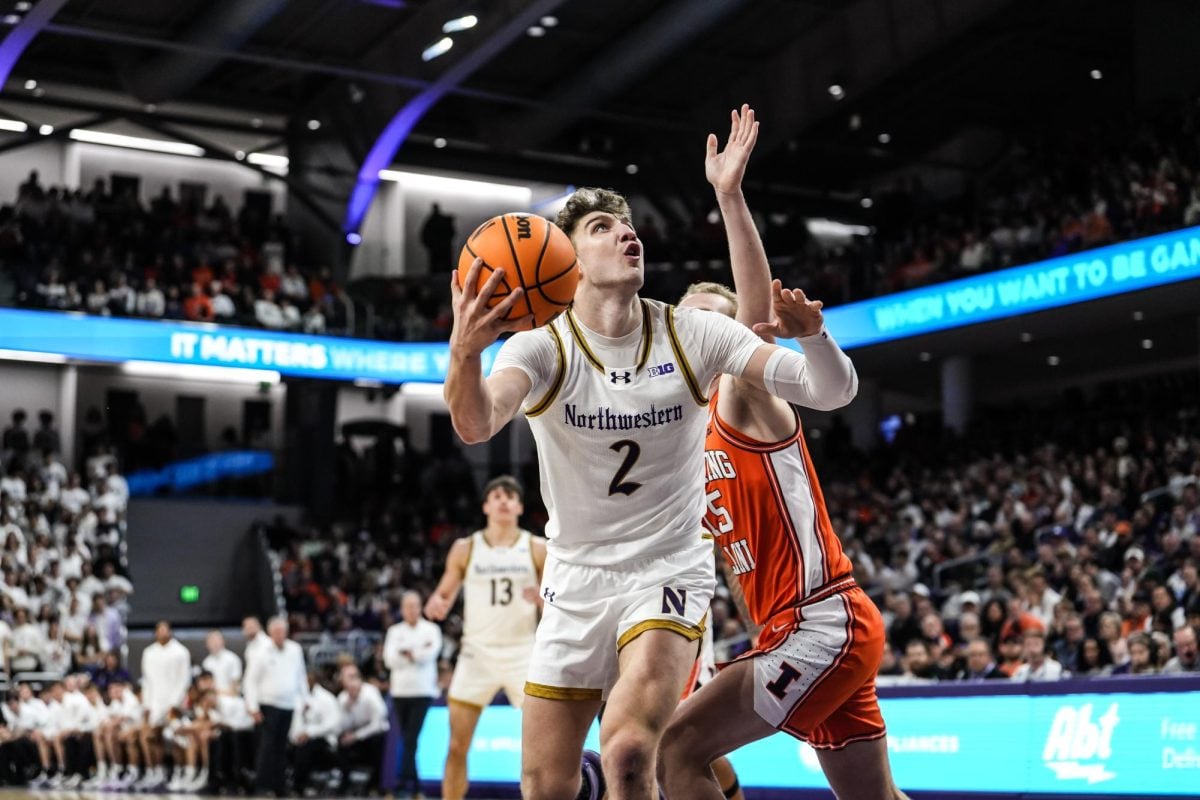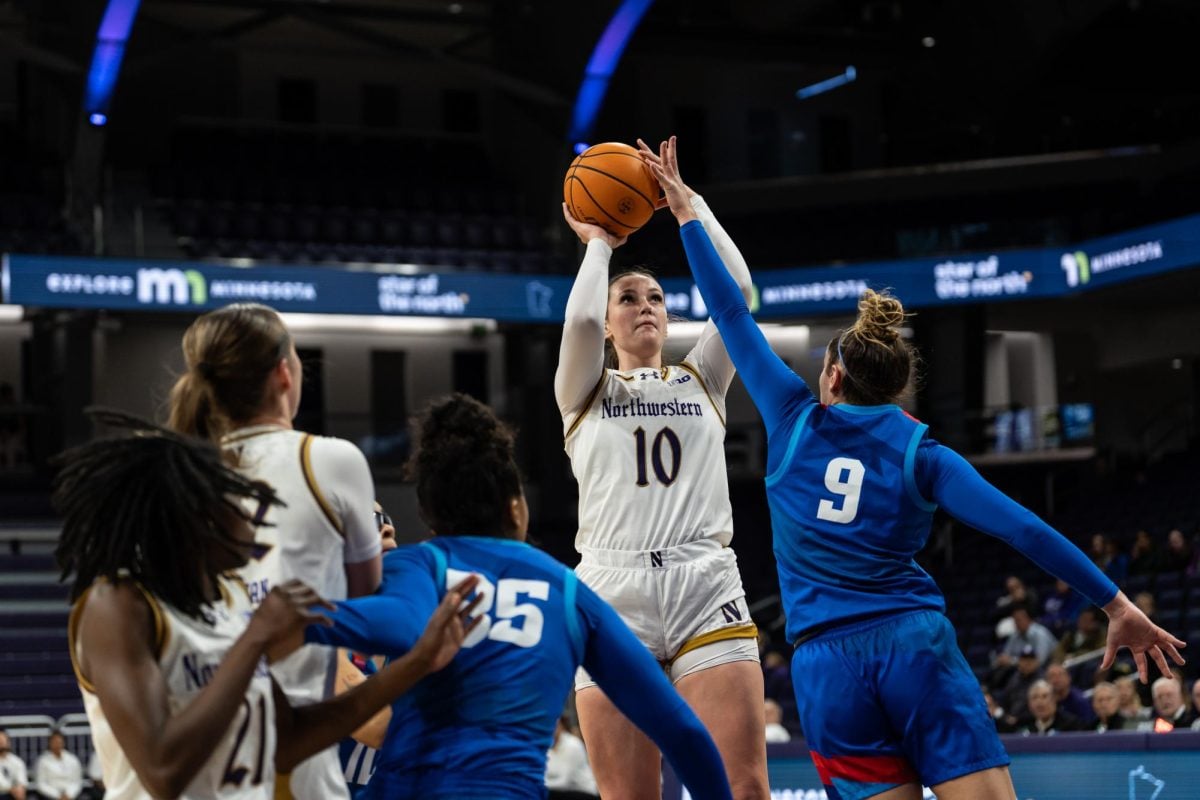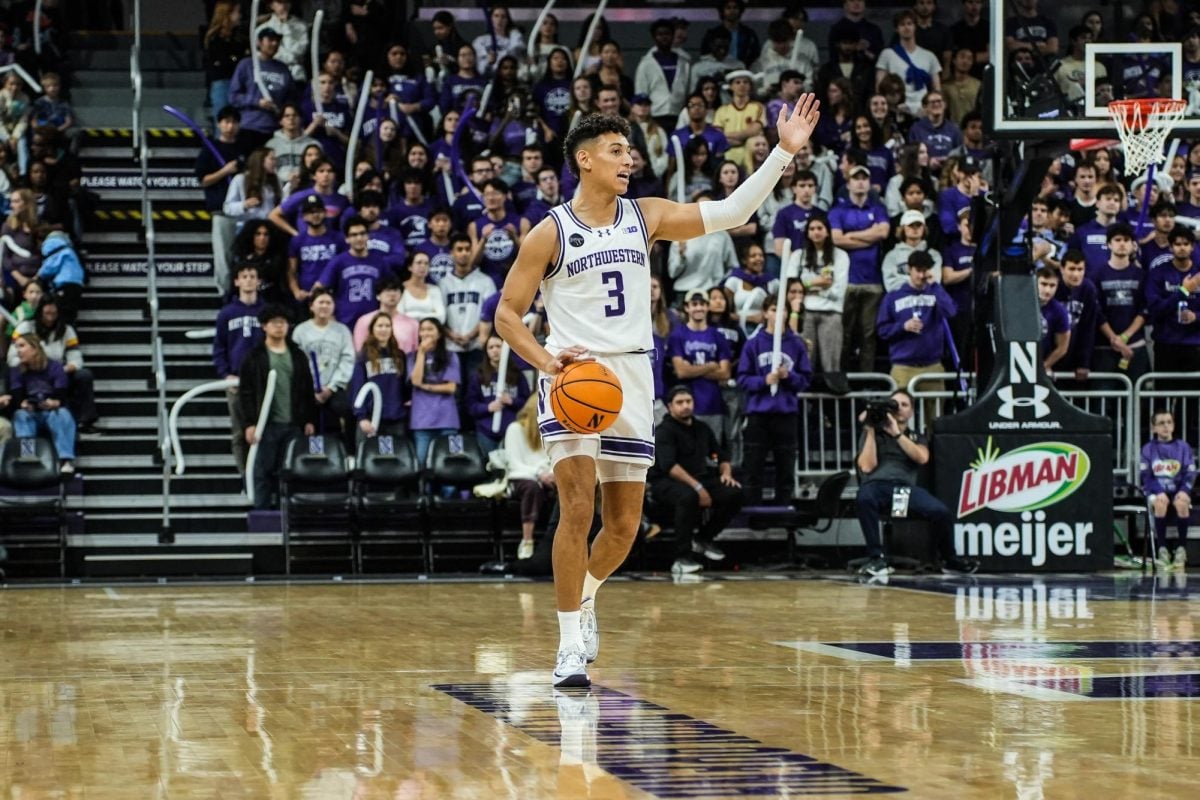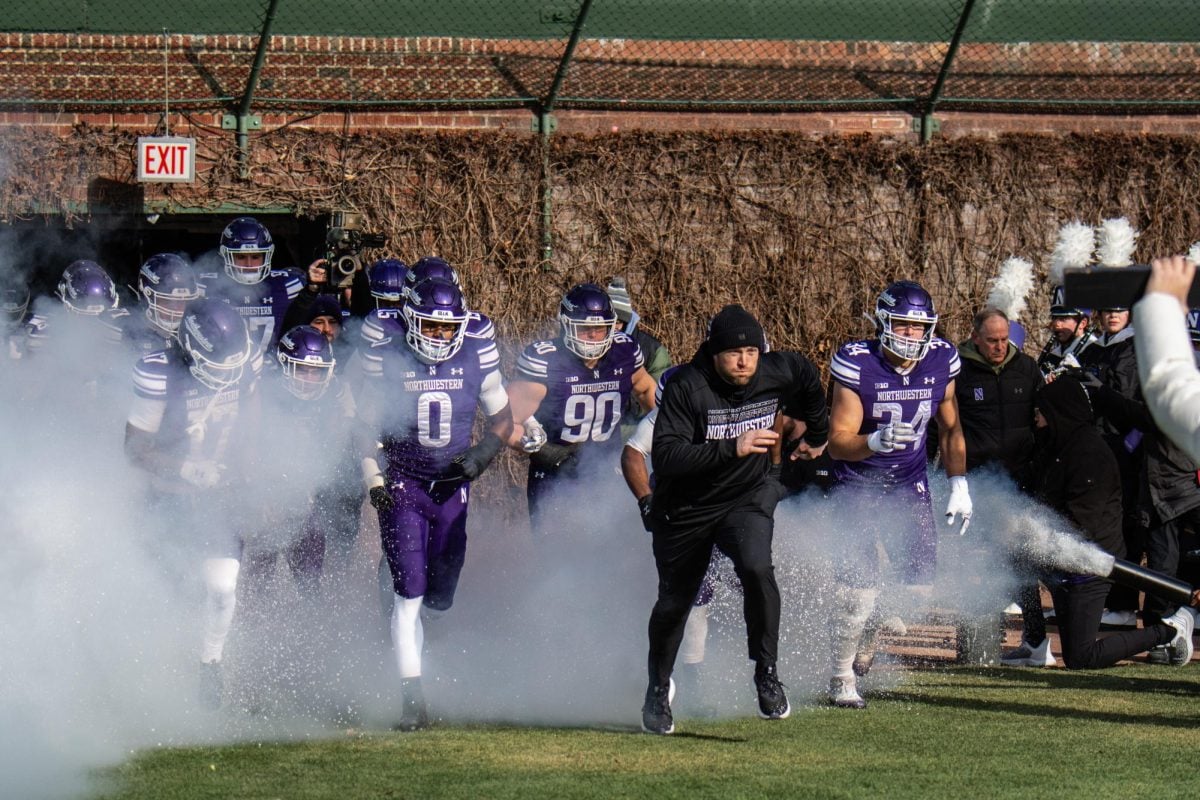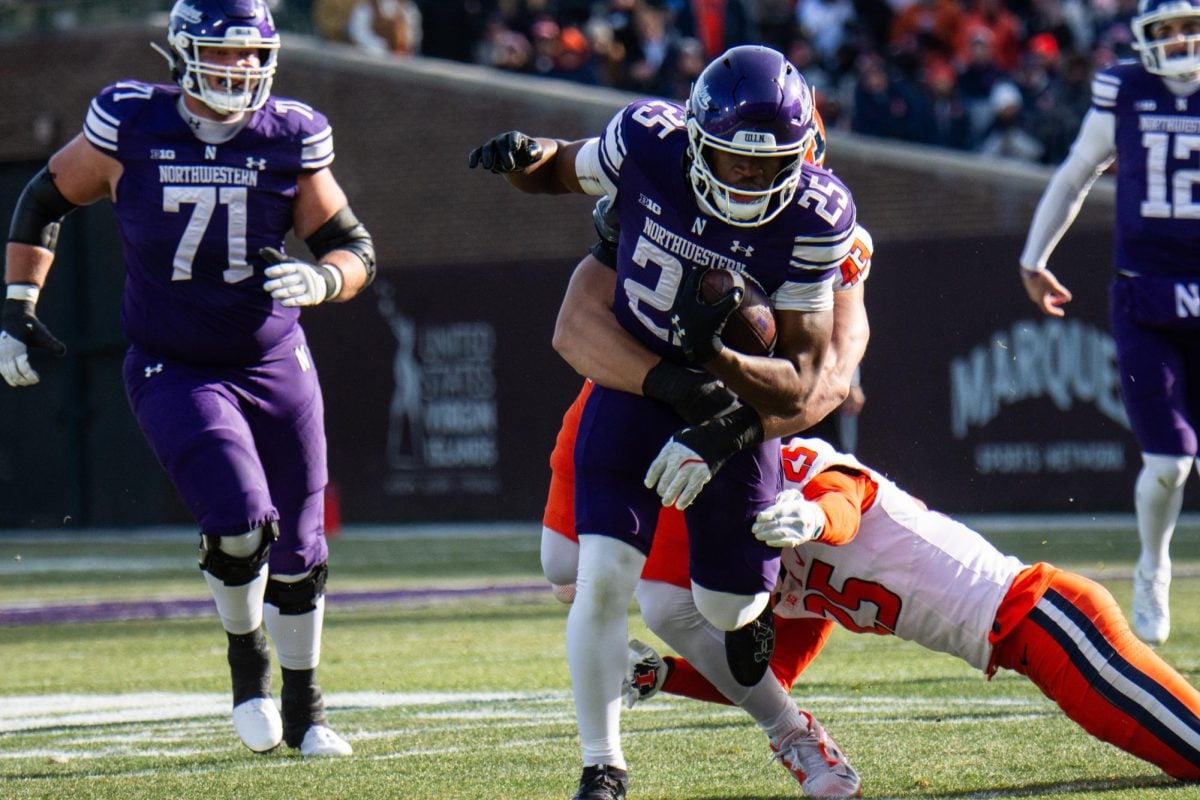When she received a “vague” email accusing her of an academic integrity violation, Northwestern undergraduate Kate, who asked to use a pseudonym for fear of retribution, was concerned and, above all, confused.
Weinberg Assistant Dean for Academic Integrity Ricardo Court notified her via email of “a possible academic integrity issue in connection with inappropriate citation.”
“There was really no detail, so it was pretty intimidating and a scary email to get,” Kate said.
Consistent with Weinberg’s academic integrity policy, she was given seven days to schedule a hearing with Court, who processes all academic integrity cases for Weinberg students. If she was unable to meet within a week, her case would be decided without the opportunity to defend herself.
Court eventually gave Kate the details of her alleged violation when she arrived at her hearing. However, she said the dean repeatedly criticized her writing at the hearing, which surprised her.
“The dean repeatedly told me it was bad writing, that it was weak, that I didn’t have connected ideas and my thesis wasn’t strong,” she said. “Those critiques may have been valid, but I really didn’t know what they had to do with the plagiarism aspect.”
Kate brought a witness to the hearing, but she said he was not allowed to speak on her behalf until the end.
Witnesses are intended to “support students as a presence in the room and as a confidant to reflect on the meeting,” University spokesperson Erin Karter said in a statement to The Daily.
Karter added students may propose witness testimony, if relevant to their case.
During the hearing, which she described as a “berating,” she said she felt like she was presumed guilty despite being innocent.
“I knew I hadn’t done anything wrong — purposefully at least — but the way the meeting went I almost felt like I wanted to say I was wrong, even though I felt like I wasn’t,” she said.
Kate recounted that Court told her he would discuss her defense with her professor. Three days later, Kate received her decision: not guilty.
University spokespeople did not respond to a request for comment from Court about the situation.
Sara, who asked to use a pseudonym for fear of retribution, was also frustrated with the lack of specificity in the email she received. But, Sara said she was able to adequately defend herself in her hearing and described Court as “understanding.”
According to Weinberg’s academic integrity procedures website, students are presented with the evidence against them at the beginning of their hearing, after which they can continue or schedule another hearing within one week to prepare their defense.
“I was able to defend myself pretty well,” Sara said. “He gives you time to prepare. I know if you want you could also schedule a meeting for later, but I knew I didn’t do anything, so I was able to keep going.”
In Sara’s case, she was accused of allowing someone to cheat off her during an exam, which she denied.
Like Kate, she said students accused of a violation can be made to feel guilty even if they are not. She said one of the possible outcomes of a case, “insufficient evidence to support the allegation,” implies the dean believes the student to be guilty but could not prove it.
“If I was found guilty, I was honestly super scared,” Sara said. “My hopes are (to go to) medical school eventually. Or even if I would have to do something like transferring, that’s a really big thing to grapple with.”
Sara said the person who allegedly cheated using her work received the “insufficient evidence” result. She, however, was found not guilty.
In a statement to The Daily, Karter said NU’s academic integrity policies support student learning.
“Northwestern’s academic integrity standards are predicated on student learning, growth and development, as well as recognition of individual achievement in a community of scholars,” she wrote. “Working through challenging content and assignments helps students grow intellectually and personally.”
Karter added that cases are typically reported by professors, who have discretion to determine a grade penalty for a violation.
An expulsion for an academic integrity violation, which happens at the discretion of the dean, is the only sanction which automatically appears on a student’s transcript, Karter said.
Dominic, who asked to use a pseudonym for fear of retribution, received a warning after he sent code for a computer science assignment to a friend in a class he had previously taken.
According to McCormick’s academic integrity website, the McCormick associate dean for undergraduate engineering will notify the student of “the nature of the concern that has arisen, the course in question, and the instructor.”
But, like Kate and Sara, he also said the email informing him of the alleged violation was unspecific. He said he sent the code to his friend because he wanted to help her with an assignment.
“She was having a hard time — not just in the course, but in general,” Dominic said. “Regardless of whether or not she was in a bad mental state, I think I still would have sent code.”
Dominic knew he had violated McCormick’s policy, so he crafted an explanation together with the student to whom he sent code. This, he said, helped him receive a warning instead of a violation — his grade was not affected.
Academic integrity policies are similar between NU’s undergraduate schools because they all follow the Office of the Provost’s Principles Regarding Academic Integrity, Karter told The Daily. These principles include standards of due process and appropriate sanctions for violations.
Dominic said McCormick Associate Dean of Undergraduate Engineering Wesley Burghardt was “chill” and “wasn’t trying to push things out of me.”
Dominic added that academic dishonesty runs rampant in computer science classes because there is often only one way to solve a problem. Last academic school year, he estimated about a quarter of students cheated in Computer Science 211, a requirement for computer science majors and minors.
“Everyone sort of knew the rules of the game,” he said. “And so either they’re still cheating and they’re just being better about it, or they’re just straight up isn’t cheating — I think it’s the first.”
While the circumstances of each case vary, most students have a common wish: more transparency and communication about the alleged violation.
Kate said she felt scared and intimidated because she did not know what she was accused of until the hearing. Because of this, she said she felt overwhelmed and subsquently unable to prepare a defense.
“There definitely could be improvements made to the system as a whole in terms of how violations are reported or found,” she said.
Email: [email protected]
X: @IsaiahStei27
Related Stories:
— Assistant dean reprimands students in faculty email for threefold academic integrity violations
— Northwestern community members discuss use of AI program ChatGPT to write academic papers
